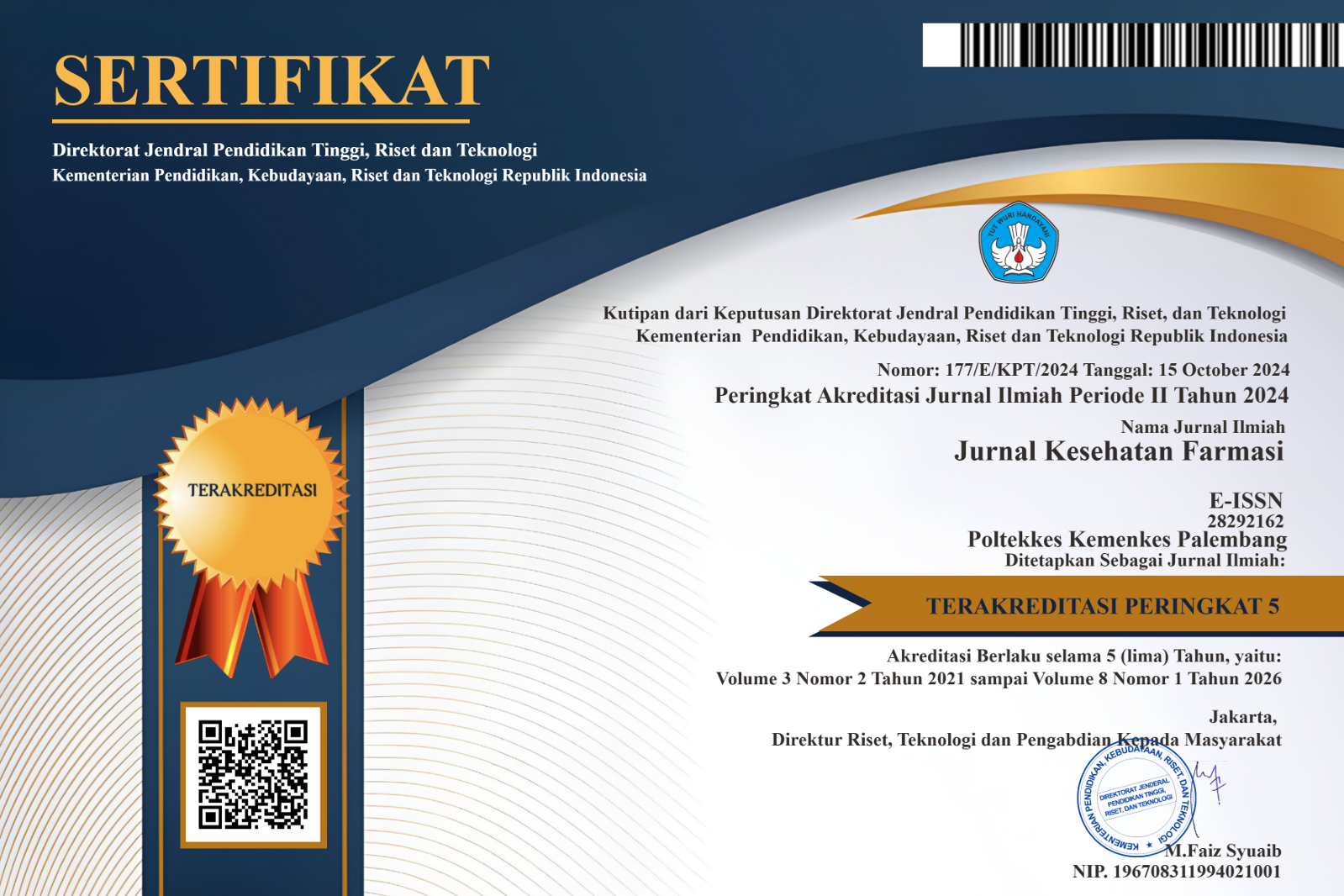Antibacterial activity test of etanol extract of bandotan leaves Ageratum connizoides againts Salmonella typhi
Abstract
Indonesian people have long utilized plants as traditional medicine. One of them is bandotan leaves (Ageratum conyzoides L), which is known to have active compounds such as flavonoids and saponins with potential as antibacterial against Salmonella typhi bacteria. The purpose of this study was to determine the antibacterial effectiveness of ethanol extract of bandotan leaves against Salmonella typhi bacteria.Abstract topics include: introduction (1-2 sentences), the objective of study (1 sentences), maximum 200 word abstract in English in italics with Times New Roman 11 point, single space. Abstract should be clear, descriptive, and should provide a brief overview of the problem studied.
Methods: The research was conducted using maceration method to obtain ethanol extract of bandotan leaves with concentration of 5%, 10%, 20%, 40%, and 80%. Antibacterial activity was tested using the diffusion method with paper discs. The zone of inhibition was measured and statistically analyzed using one-way ANOVA.
Results: The research was conducted using maceration method to obtain ethanol extract of bandotan leaves with concentration of 5%, 10%, 20%, 40%, and 80%. Antibacterial activity was tested using the diffusion method with paper discs. The zone of inhibition was measured and statistically analyzed using one-way ANOVA.
Conclusion: The ethanol extract of bandotan leaves has strong potential as an antibacterial against Salmonella typhi, especially at 80% concentration.
Keywords : Bandotan leaf extract, salmonella typhi, inhibition
Authors who publish with this journal agree to the following terms:
- Authors retain copyright and grant the journal right of first publication with the work simultaneously licensed under a Creative Commons Attribution License that allows others to share the work with an acknowledgement of the work's authorship and initial publication in this journal.
- Authors are able to enter into separate, additional contractual arrangements for the non-exclusive distribution of the journal's published version of the work (e.g., post it to an institutional repository or publish it in a book), with an acknowledgement of its initial publication in this journal.
- Authors are permitted and encouraged to post their work online (e.g., in institutional repositories or on their website) prior to and during the submission process, as it can lead to productive exchanges, as well as earlier and greater citation of published work














